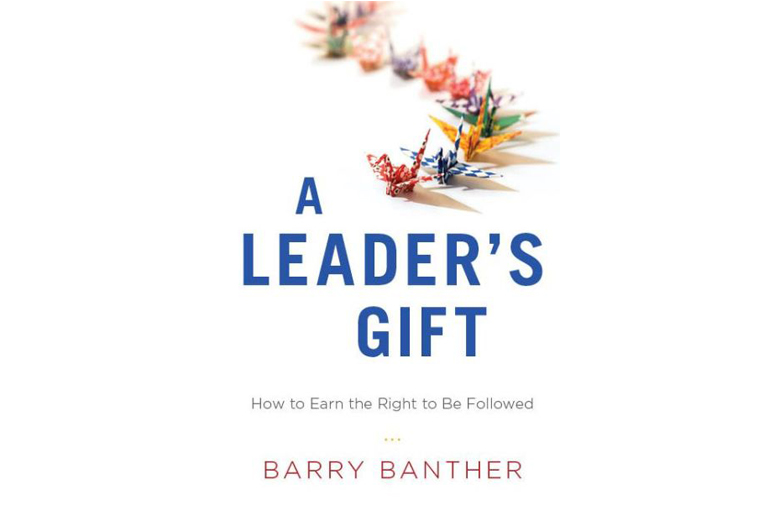One of my favorite shows of all time is Andy Griffith. When Andy passed away, I wrote 7 Things I Learned from Andy Griffith. One of the best things I learned from Andy is how to listen. Andy listened really well. He wasn’t one to lecture his son, Opie, or his friends. Instead, he helped them get to the right answer by asking questions, telling a brief story, and then just listening to them. And when he listened, he really listened. He didn’t have the TV on, he wasn’t texting, and he wasn’t checking emails. He looked those boys straight in the eye and gave them his complete, undivided attention with a warm smile and a welcoming look on his face.
Oh how I’d like to be more like Andy. He had a great gift—the gift of listening. It’s a gift that I struggle with a lot. To be a good leader at home and at work, I know I need to be a much better listener.
So I’m very grateful that my long-time friend and mentor, Barry Banther, has come to my rescue. In his new book, A Leader’s Gift, author Barry Banther shares that when we’re speaking with someone, we often “wonder whether the other person is really listening or just waiting to respond. Few people are actually listening to understand.” I’m definitely guilty…I often find myself not really listening to the other person; I’m just thinking about what I want to say. Banther goes on to share that, “There are few moments that make us feel more valued as a person than when we believe someone is genuinely listening to us.” And when we feel valued, we’re more likely to trust the person. Trust is key when leading at work and at home.
Barry then goes on to share 5 listening skills that each of us must learn to lead our family in our homes and our team at work.
Skill #1: Stop, drop, and listen.
When someone is speaking to you, “be there and nowhere else. Stop what you are doing, drop whatever you were working on, and just listen,” Barry says. This is an especially tough skill for me, but it’s the first skill in sending an important message to the other person: I value you and I want to hear what you are thinking.
Skill #2: Suspend judgment.
My impulse is often to listen to someone briefly, cut them off in mid-sentence, and share with them what I think they should do. Instead, even if I do know the answer, I should suspend judgment on what they are saying, hear them out, and then kindly respond. We should listen to understand.
Skill #3: Search deeper.
In A Leader’s Gift, Barry shares, “Rarely will an employee, and certainly a child or a spouse for that matter, reveal everything to you about something right off the bat. As a leader, it is your job to bring out what the other person is thinking.”
A good way to search deeper into what a person is thinking is through something I learned during my years as an attorney—the Socratic method of questioning. It’s basically asking a series of questions to get to the truth. For example, instead of just sharing your opinion, ask your spouse, your child, or your teammate follow up questions like: How do you mean that? Can you give me an example? Why is this important? How will this affect us? What do you think we should do? Then listen. You’ll probably learn much more than if you lectured.
Skill #4: Seek misunderstanding.
“In almost every instance of talking with another person, there will be misunderstanding. To become a lasting leader, you have to assume this misunderstanding and seek it out. So there won’t be any miscommunication, after you’ve listened, repeat back what the other person says, “I heard you say…is that correct?”
Skill #5: Show appreciation.
It sometimes takes a lot of courage for your teen to open up to you and have an honest, heartfelt conversation about a very personal matter. The same holds true for an employee. If you want more honest communication, then celebrate it. People usually repeat the action they are applauded for. So whether you agree or disagree, genuinely thank the other person for talking. Something like, “I really appreciate you openly sharing your thoughts with me. I hope we can do it again soon” will go a long way in building your relationship and demonstrating your leadership.
Can you think of other listening skills we need to have as leaders? Please share them in the comments below.
I also encourage you to order Barry Banther’s new book, A Leader’s Gift today.



